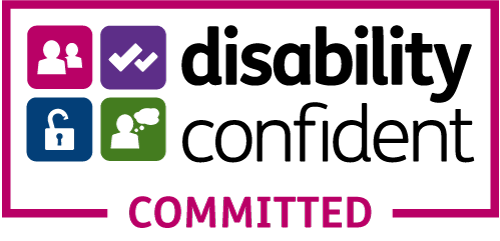In the evolving landscape of the job market, virtual interviews have become a cornerstone of the recruitment process, particularly in the UK. As businesses and candidates adapt to remote working norms, mastering the art of virtual interviews is crucial for both parties to ensure a successful and smooth hiring process. This article outlines the best practices for employers and candidates to excel in virtual interviews, fostering a professional and efficient experience. Best Practices for Employers 1. Preparation and Technology Check Before conducting virtual interviews, it is vital for employers to ensure that the necessary technology is in place and functioning correctly. This includes having a reliable internet connection, a working webcam and microphone, and a quiet, professional environment. Testing these components prior to the interview can prevent technical difficulties that might disrupt the conversation. 2. Structured Interview Process Developing a structured interview process is key to maintaining consistency and fairness. Prepare a set of standard questions that align with the job requirements and the skills needed. This not only helps in evaluating candidates uniformly but also ensures that all relevant topics are covered. Additionally, sharing the interview format with candidates beforehand can help them prepare adequately. 3. Clear Communication Clear and concise communication is essential. Provide candidates with detailed instructions on how to join the virtual interview, including the platform being used (e.g., Zoom, Microsoft Teams) and any necessary login details. It is also helpful to inform them about the interview schedule, expected duration, and who they will be speaking with. 4. Engaging and Professional Environment Creating an engaging and professional environment is crucial for making candidates feel comfortable. Begin the interview with a brief introduction of the company and the role and take the time to introduce the interviewers. Maintain eye contact by looking into the camera and be mindful of your body language. This helps in establishing a connection, even though a screen. 5. Feedback and Follow-Up Providing timely feedback is an important aspect of the interview process. Inform candidates of the next steps and give them an estimated timeline for when they can expect to hear back. Constructive feedback, whether positive or negative, is highly valued by candidates and reflects well on the organisation. Best Practices for Candidates 1. Familiarise Yourself with the Technology Candidates should ensure they are comfortable with the technology being used for the interview. This includes downloading the necessary software, testing the webcam and microphone, and ensuring a stable internet connection. Conducting a trial run with a friend or family member can help identify and resolve any potential issues beforehand. 2. Professional Appearance and Environment Dressing professionally and setting up a tidy, quiet space for the interview is crucial. A neutral background with good lighting enhances the professional appearance and minimises distractions. Ensure that all necessary documents, such as your CV and notes, are readily accessible. 3. Preparation and Research Thorough preparation is key to a successful interview. Research the company, its culture, and the specific role you are applying for. Prepare answers to common interview questions and be ready to discuss your skills, experiences, and how they align with the job requirements. Having a few questions prepared for the interviewer demonstrates your interest in the role and organisation. 4. Effective Communication Clear and articulate communication is essential in a virtual interview. Speak slowly and clearly, and be mindful of any potential lag in the connection. Maintaining eye contact by looking into the camera rather than the screen can help create a sense of direct engagement. Listen carefully to the questions and provide concise, relevant answers. 5. Follow-Up Sending a thank-you email after the interview is a courteous gesture that reinforces your interest in the position. Use this opportunity to reiterate your enthusiasm for the role and highlight any key points discussed during the interview Conclusion Virtual interviews are a vital part of the modern recruitment process in the UK and mastering them requires attention to detail and preparation from both employers and candidates. For employers, ensuring a seamless technological setup, structured process, clear communication, and professional engagement are paramount. For candidates, familiarity with the technology, professional appearance, thorough preparation, effective communication, and timely follow-up can significantly enhance their prospects. By adhering to these best practices, both parties can navigate virtual interviews successfully, leading to better hiring decisions and positive experiences for all involved.
Guide to creating a killer PowerPoint Presentation for your Interview
Creating a compelling PowerPoint presentation for an interview task involves a blend of clear communication, engaging visuals, and strategic structuring. Here’s a step-by-step guide. Creating a killer PowerPoint Understand your audience and purpose Audience: Know who will be viewing your presentation. Tailor your language, tone, and content to match the expectations and preferences of your interviewers. Purpose: Clarify the goal of your presentation. Is it to inform, persuade, or demonstrate your skills? Plan your content Outline: Start with a clear outline. Break down your presentation into key sections such as introduction, main content, and conclusion. Key Messages: Identify the main messages you want to convey in each section. Make sure each slide has a clear objective. Create a strong opening Title Slide: Include the presentation title, your name, and the date. Introduction Slide: Briefly introduce yourself and outline what you will cover in the presentation. Design visually appealing slides Consistent Theme: Use a professional template with a consistent colour scheme and font style. High-Quality Images: Incorporate relevant, high-resolution images and graphics. Avoid overloading slides with text. Clear Layout: Use bullet points, headings, and ample white space to make slides easy to read. Develop engaging content Slide Content: Introduction: Briefly introduce the topic and its relevance. Main Body: Present your main points clearly, using data and examples where appropriate. Each slide should cover a single idea or point. Conclusion: Summarise the key points and suggest next steps or recommendations. Use data effectively Charts and graphs: Visualise data using bar charts, pie charts, or line graphs. Ensure they are easy to understand and labelled clearly. Infographics: Use infographics to simplify complex information. Add interactivity Questions: Pose questions to the audience to engage them. Links: Include hyperlinks to relevant resources or videos (if applicable). Pay attention to details Proofreading: Check for spelling and grammatical errors. Ensure your language is formal and professional. Pacing: Allocate a reasonable amount of time to each slide. Avoid rushing through or dwelling too long on any single slide. Practice delivery Rehearse: Practice your presentation multiple times. Focus on your timing, transitions, and speaking clearly. Feedback: If possible, present to a friend or colleague and ask for constructive feedback. Prepare for technical issues Backup: Save your presentation on multiple devices and cloud storage. Equipment Check: Test the presentation on the actual equipment you will use during the interview. Audience: Know who will be viewing your presentation. Tailor your language, tone, and content to match the expectations and preferences of your interviewers. Purpose: Clarify the goal of your presentation. Is it to inform, persuade, or demonstrate your skills? Outline: Start with a clear outline. Break down your presentation into key sections such as introduction, main content, and conclusion. Key Messages: Identify the main messages you want to convey in each section. Make sure each slide has a clear objective. Title Slide: Include the presentation title, your name, and the date. Introduction Slide: Briefly introduce yourself and outline what you will cover in the presentation. Consistent Theme: Use a professional template with a consistent colour scheme and font style. High-Quality Images: Incorporate relevant, high-resolution images and graphics. Avoid overloading slides with text. Clear Layout: Use bullet points, headings, and ample white space to make slides easy to read. Slide Content: Introduction: Briefly introduce the topic and its relevance. Main Body: Present your main points clearly, using data and examples where appropriate. Each slide should cover a single idea or point. Conclusion: Summarise the key points and suggest next steps or recommendations. Charts and graphs: Visualise data using bar charts, pie charts, or line graphs. Ensure they are easy to understand and labelled clearly. Infographics: Use infographics to simplify complex information. Questions: Pose questions to the audience to engage them. Links: Include hyperlinks to relevant resources or videos (if applicable). Proofreading: Check for spelling and grammatical errors. Ensure your language is formal and professional. Pacing: Allocate a reasonable amount of time to each slide. Avoid rushing through or dwelling too long on any single slide. Rehearse: Practice your presentation multiple times. Focus on your timing, transitions, and speaking clearly. Feedback: If possible, present to a friend or colleague and ask for constructive feedback. Backup: Save your presentation on multiple devices and cloud storage. Equipment Check: Test the presentation on the actual equipment you will use during the interview. Slide-by-slide breakdown Title Slide Title of Presentation Your Name Date Introduction Brief introduction of yourself Overview of the presentation content Background/Context Relevant background information Context setting for the topic Main Point 1 Key message Supporting data and examples Main Point 2 Key message Supporting data and examples Main Point 3 Key message Supporting data and examples Conclusion Summary of key points Final thoughts or recommendations Q&A Invite questions from the audience Title of Presentation Your Name Date Brief introduction of yourself Overview of the presentation content Relevant background information Context setting for the topic Key message Supporting data and examples Key message Supporting data and examples Key message Supporting data and examples Summary of key points Final thoughts or recommendations Invite questions from the audience Tips for success Clarity Ensure each slide is clear and not cluttered. Use concise text and impactful visuals. Confidence Present with confidence. Maintain eye contact, and use a strong, clear voice. Engagement Engage with your audience. Use interactive elements and encourage questions. Ensure each slide is clear and not cluttered. Use concise text and impactful visuals. Present with confidence. Maintain eye contact, and use a strong, clear voice. Engage with your audience. Use interactive elements and encourage questions. By following these steps and focusing on clear, professional, and engaging content, you can create a killer PowerPoint presentation that will impress your interviewers and effectively communicate your message. You can showcase your skills, confidence, and professionalism, significantly increasing your chances of securing your next dream job. A well-prepared and compelling presentation can set you apart from other candidates, demonstrating your ability to communicate effectively and leave a lasting impression on potential employers. Take this opportunity to shine and make
Why Choose a Generalist Recruitment Agency: The Case for Versatility and Value
In today’s competitive job market, finding the right talent is crucial for business success. Companies often face the dilemma of whether to engage a specialist recruitment agency or a generalist one. While specialist agencies focus on specific industries or job functions, generalist recruitment agencies offer a broader perspective and versatility that can be particularly advantageous. This blog will explore why choosing a generalist recruitment agency might be the smarter choice, especially considering the potential limitations of specialist agencies and the value generalists bring to the table. Broad Perspective and Versatility One of the primary advantages of a generalist recruitment agency is its broad perspective. Generalists are not confined to a single industry or job function, allowing them to cast a wider net when searching for candidates. This versatility can be particularly beneficial for companies with diverse hiring needs or those looking to fill roles that require a mix of skills from different disciplines. Specialist agencies, on the other hand, can be tunnel visioned. Their deep focus on a particular sector can limit their ability to think outside the box. They may overlook candidates from adjacent industries who could bring fresh perspectives and innovative solutions to the role. In contrast, generalist agencies are more likely to consider a wider range of candidates, including those with transferable skills that might not be immediately obvious but could prove invaluable in the long run. Innovative and Adaptive Solutions Generalist recruitment agencies are often more innovative and adaptive in their approach. Because they work across various industries, they are exposed to a wide range of hiring practices, trends, and challenges. This diverse experience enables them to adopt and implement best practices from different sectors, offering more creative and effective recruitment solutions. Specialist agencies, by focusing solely on their niche, can become entrenched in a particular way of thinking. This narrow focus might prevent them from recognising opportunities outside their immediate expertise. For instance, a specialist IT recruitment agency might not consider a candidate with a strong background in finance who has developed relevant tech skills, simply because they do not fit the traditional IT mould. A generalist agency, however, would be more open to such cross-functional potential, providing businesses with a more dynamic and adaptable workforce. Cost-Effectiveness Another significant advantage of generalist recruitment agencies is cost-effectiveness. Specialist agencies often charge a premium for their services, justified by their deep industry knowledge and extensive networks within a particular sector. However, this premium can be a burden for businesses, especially small and medium-sized enterprises (SMEs) with limited recruitment budgets. Generalist agencies, while equally competent, tend to offer more competitive pricing structures. They can provide high-quality candidates without the hefty price tag associated with specialist services. This cost-effectiveness allows businesses to allocate resources more efficiently, potentially investing the savings in other critical areas such as training and development or employee benefits. Reduced Bias and Fresh Perspectives Generalist recruitment agencies bring a fresh, unbiased perspective to the hiring process. Specialist agencies, through their repeated exposure to the same type of candidates and roles, can develop implicit biases towards particular profiles. This can result in a homogenised workforce lacking diversity in thought and approach. In contrast, generalist agencies are less likely to fall into this trap. Their exposure to a diverse range of candidates and industries helps them maintain a more balanced and open-minded approach. They are more likely to present candidates who can bring new ideas and different ways of thinking, fostering a more innovative and dynamic workplace culture. Holistic Understanding of Talent A generalist recruitment agency’s wide-ranging experience enables it to develop a holistic understanding of what makes a great candidate. They are adept at identifying core competencies and soft skills that are valuable across various roles and industries. This holistic approach ensures that candidates are not just a good fit for the specific job but also align well with the company’s culture and long-term goals. Specialist agencies, with their narrow focus, might prioritise technical skills and industry-specific experience over these broader, equally important attributes. This can result in hires who excel in their specific roles but may struggle to adapt to different challenges or integrate into the company’s broader culture. Conclusion Choosing a generalist recruitment agency can offer numerous benefits, from broader candidate. pools and innovative solutions to cost-effectiveness and reduced bias. While specialist agencies provide deep industry knowledge, their tunnel vision can limit their ability to think outside their niche, potentially missing out on versatile candidates who could bring significant value. Generalist agencies, with their adaptable and open-minded approach, can provide a more holistic and balanced recruitment service. They are well-positioned to help businesses navigate the complexities of today’s job market, ensuring they find the right talent to drive their success. For companies seeking a recruitment partner who can offer versatility, innovation, and value, a generalist recruitment agency is an excellent choice.





